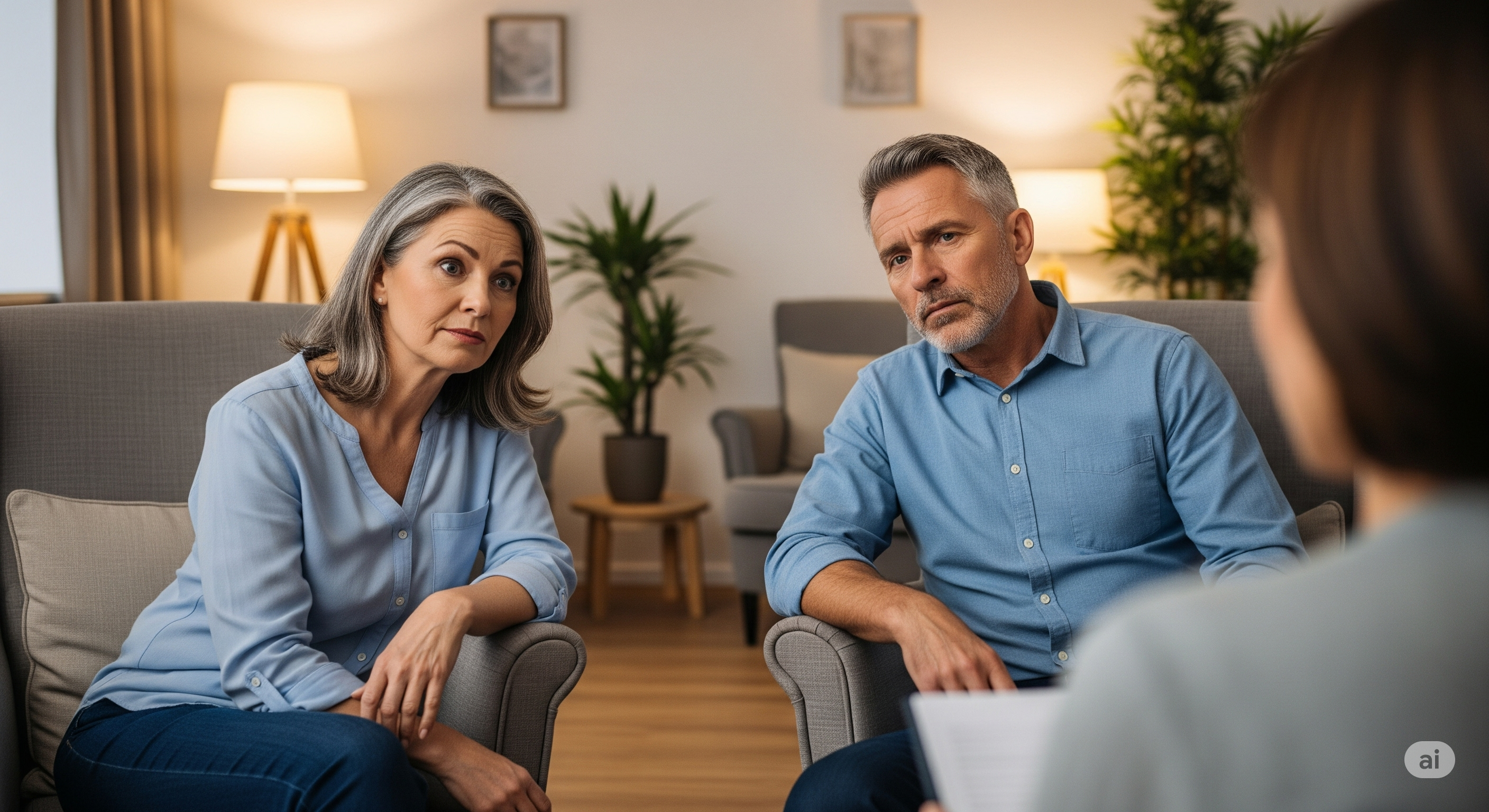FAQs About Marriage Counseling
What are the key components of effective marriage counseling?
Good marriage counseling has several parts to it. The first part is opening up lines of communication where there isn’t a winner or a loser. The goal is for both partners to communicate with each other. This involves learning strategies and techniques to influence your partner and help them feel that you care about them. The second part is healing any wounds that have occurred, often as a result of misunderstandings.
When should a couple seek counseling?
It’s time for counseling when negative interactions have a greater impact than positive ones. If there’s constant tension and arguments, a third person can help you feel understood. Counseling is needed when there’s a breakdown in communication and anger seems to dominate the relationship. Ultimately, a relationship is not in a good place if even one person feels wounded. It takes only one person to make it “not right” if they feel unheard, unloved, or misunderstood.
What are the biggest reasons couples struggle?
A lack of communication is a major issue; people often feel like they aren’t being heard or that their concerns aren’t given enough weight. Lack of time together is also a significant problem, as couples often become too busy with kids and work to prioritize their relationship. Other reasons for dissatisfaction include boredom from a lack of interesting or exciting shared activities, as well as a lack of sexual intimacy.
How long does marriage counseling typically take?
There is no average timeline for how long counseling takes. The length of therapy is “tremendously shortened” by how much couples work on things between sessions. This “homework” includes spending time together, surprising each other, and being intimate. The more active a couple is between sessions, the quicker they tend to see results.
What if only one person wants to go to counseling?
If one person is reluctant to attend, the other person can take the lead by attending therapy on their own. By modeling positive changes and showing that you are trying and that you care, you can motivate your partner to change as well. When your partner feels that you are changing, it’s a great motivator for them to want to change too. Over time, they may become touched by your efforts and sign on to be a part of the counseling process.
Is virtual or online counseling as effective as in-person sessions?
Virtual therapy tends to solve the problem of a lack of time, which is often a bigger issue than a lack of money. It provides convenience, allowing you to have a session from your living room, car, or even bedroom, making it easier to meet consistently. This consistency is crucial for making progress. When it’s inconvenient, people tend to find reasons not to connect, which can make therapy “choppy” and ineffective.
How do I choose the right marriage counselor?
When you make the first contact with a potential counselor, don’t immediately make an appointment. Instead, gather information and then step back to think about how you felt during the interaction. Ask yourself:
- Did you feel listened to and understood?
- Did the counselor make you feel defensive or scolded, or did they seem to understand you?
- What is their strategy for approaching the problem?
- Do they seem patient and do their suggestions make sense?
Trust your feelings and take the time to evaluate the connection before committing to a first session.
